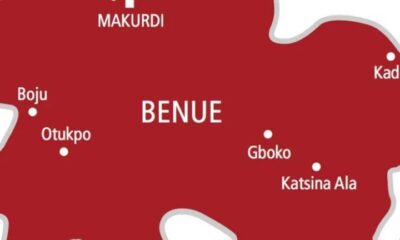News
C’River women demand justice over mining exploitation, environmental damage
From Ene Asuquo, Calabar
Women from mining communities in Cross River State have raised alarm over environmental destruction, health hazards, and corporate neglect caused by unchecked mining activities.
Their grievances were voiced at a town hall meeting organized by “We The People Centre” for Social Studies and Development (WTP) under its Strengthening Women in Mining (SWIM) project.

The event, held to empower women in mining-affected areas, featured testimonies from residents detailing polluted water sources, ruined farmlands, and deteriorating health due to mining operations.
The SWIM project, active in five Cross River communities: Akansoko, Mbobui, Akwa Ikot Effanga, Mfamosing, and Abaiti—aims to equip women with legal knowledge and advocacy tools to demand accountability.
Nsikak Udofot, WTP’s Project Officer on Mining and Forestry, stated, “Our goal is to help women in these communities build collective power to challenge injustice through legal awareness and grassroots action.”
The initiative is supported by the Grassroots Justice Network, Legal Empowerment Fund, and The Fund for Global Human Rights.
Augustine Vicker Ukah, a lawyer and WTP Programmes Officer, outlined relevant laws protecting mining communities, including the Mineral and Mining Act (2007), Land Use Act, and the 1999 Constitution. He emphasized that companies are legally obligated to address environmental damage and provide fair compensation.
Ebonyi varsity to hold 1st Alumni Lecture, picks Anyaso to deliver keynote address
“Mining pollution violates fundamental human rights. The right to life includes access to clean air, safe water, and healthy land,”* Ukah said. He urged affected communities to continue their fight for justice, stating, “The day you stop speaking is the day you stop living. Even if justice is delayed, persistence is key.”
Women from communities near a renowned mining company in the state shared distressing accounts of corporate negligence, with many reporting illnesses linked to contaminated water and soil.
As the SWIM project expands, these women are transitioning from victims to advocates, determined to hold mining companies accountable and secure their rights.


















